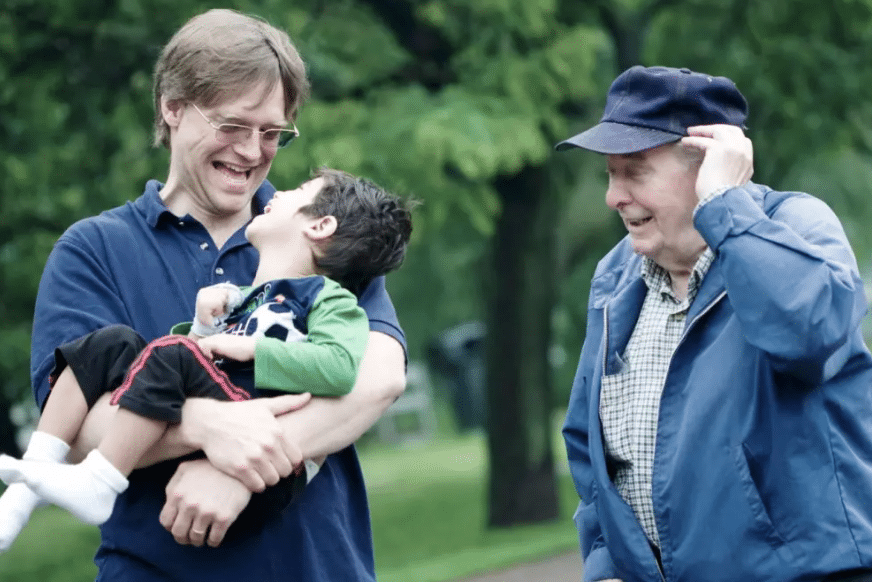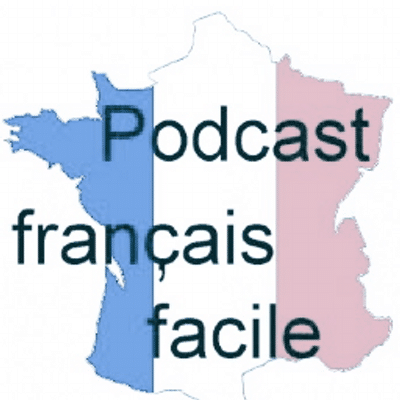
French Conversation Practice: 10 French Dialogue Scripts to Boost Your Speaking Skills
Wouldn’t it be nice if French conversations followed a script?
Unfortunately, life’s not a movie. But following a script actually can help you prepare for real-life French dialogues.
Practicing with a French conversation script allows you to become familiar with certain key words or phrases that you’ll need in the real world.
Here, I’ll provide 10 simple, sample French conversation scripts, along with resources so you can find more on your own.
Contents
- 1. Getting to Know Someone
- 2. At the Grocery Store
- 3. At the Bank
- 4. At the Hotel
- 5. At a Restaurant
- 6. Talking About Family
- 7. Asking for Directions
- 8. A Tour of the Apartment
- 9. At a Job Interview
- 10. At the Doctor’s
- Why Use Dialogue Examples to Study French?
- How to Practice with French Conversation Scripts
- Where to Find French Conversation Practice Scripts
- And one more thing...
Download: This blog post is available as a convenient and portable PDF that you can take anywhere. Click here to get a copy. (Download)
1. Getting to Know Someone
Imagine you’re a college student studying in France. Now, even if you never have such an honor, this dialogue will equip you to introduce yourself and ask questions about another person in French.
This is the scenario. You’re still working on perfecting the language, so you go to a local event for FLE ( français comme langue étrangère ) or “French as a foreign language” college students.
Over dinner, a student sitting next to you strikes up a conversation. Because you’re roughly the same age, you employ the informal tu (you).
GÉRARD: D’où viens-tu ? (Where are you from?)
TOI (YOU): Je viens des États-Unis. Et toi ? (I am from the United States. And you?)
GÉRARD: Ma famille vient de la Côte d’Ivoire. Je m’appelle Gérard. (My family is from the Ivory Coast. My name is Gérard.)
TOI: Je m’appelle Lisa. Qu’est-ce que tu étudies ? (My name is Lisa. What are you studying?)
GÉRARD: J’étudie l’histoire parce que je veux être professeur d’histoire au lycée. (I study history because I want to be a high school history teacher.)
TOI: J’étudie la musique. J’espère jouer un jour dans un orchestre. (I study music. I hope to play one day in an orchestra.)
GÉRARD: Quel instrument ? (What instrument?)
TOI: Je joue du violon. (I play the violin.)
Feel free to customize the conversation. You’re practicing how to introduce yourself, after all.
You can also play around with different vocabulary by creating a whole new persona. Try different countries, names, fields of study, etc. You can be whoever you want!
2. At the Grocery Store
This dialogue offers opportunities to practice a formal register, modal verbs such as vous devez (you must) and vous pouvez (you can) and saying thank you.
Note that vous (formal “you”) is employed since this is a more formal encounter. You and the cashier don’t know each other personally.
CAISSIER (CASHIER): Excusez-moi, Madame. Vous devez les peser à la machine dans le rayon fruits et légumes. (Excuse me, ma’am. You need to weigh them at the machine in the fruits and vegetable aisle.)
VOUS: Ah, oui. J’ai oublié ! (Ah, yes. I forgot!)
CAISSIER: Pas de problème. Vous pouvez laisser les autres articles ici. (Not a problem. You can leave the other items here.)
VOUS: Merci. Donnez-moi une minute. (Thank you. Give me a minute.)
(You return)
VOUS: Merci pour votre patience. Bonne journée ! (Thank you for your patience. Have a good day!)
CAISSIER: De rien. Bonne journée ! (You’re welcome. Have a good day!)
This one’s based on an encounter I had at a French grocery store when I forgot that at most European supermarkets, you weigh vegetables in the produce section and a machine prints a barcode that can be scanned at check-out.
There I was, just trying to buy a few carrots at self-checkout when the attendant noticed my confusion at the machine.
Ideally, you’ll now remember how to buy European fruits and vegetables like a natural.
3. At the Bank
Now, opening a bank account is a big step, especially in another country.
Unless you’re looking to live in France long-term, you probably won’t actually create an account with a French bank.
However, this conversation allows you to familiarize yourself with specialized vocabulary such as financial terms and document names, which can be helpful even during shorter trips.
VOUS: Bonjour. Je voudrais ouvrir un compte. (Hello. I would like to open an account.)
BANQUIER (BANKER): Très bien. Avez-vous une carte d’identité ? (Very good. Do you have ID?)
VOUS: J’ai un passeport américain. (I have an American passport.)
BANQUIER: Ça marche. Avez-vous donc un titre de séjour ? (That works. Do you have a visa, then?)
VOUS: Oui, je l’ai apporté avec moi. (Yes, I brought it with me.)
BANQUIER: Bien. Enfin, avez-vous quelque chose avec votre adresse, une facture par exemple? (Good. Finally, do you have something with your address, a bill for example ?)
VOUS: Oh, je pense que non. C’est obligatoire ? (Oh, I don’t think so. It’s required?)
BANQUIER: Oui. Pouvez-vous revenir demain, vers 14h ? (Yes. Can you return tomorrow, around 2 p.m.?)
VOUS: Oui, merci. Je vous vois demain. Bonne journée. (Yes, thank you. I’ll see you tomorrow. Have a good day.)
BANQUIER: Bonne journée. (Have a good day.)
It’s important to note that in France, a carte de crédit (credit card) is actually a debit card.
Carte bancaire (bank card) or even carte bleue (blue card) are also used to refer to a debit card. The term carte de débit (debit card) is rare even though that’s technically what the card is.
Another useful word could be un impôt (a tax).
Note that in France, the 24-hour clock is often used, especially in a formal situation. Thus, 2 p.m. becomes 14h00 or quatorze heures.
4. At the Hotel
When travelling in a French-speaking region, it’s essential to have a place to stay. If you aren’t staying with friends or family, chances are, you’ll need a hotel.
Many hotels can be booked online these days, but it’s still fairly common to find hotels with availability—and even better prices—by seeking them out in a city or town and booking them on the spot.
In this scenario, you’ve arrived in a small French town, and you’d like to stay in a hotel for three nights.
RÉCEPTIONNISTE (RECEPTIONIST): Est-ce que je pourrais vous aider ? (Can I help you?)
VOUS: Oui. Je voudrais une chambre. (Yes. I would like a room.)
RÉCEPTIONNISTE: Avez-vous une réservation ? (Do you have a reservation?)
VOUS: Non, je n’en ai pas. (No, I don’t have one.)
RÉCEPTIONNISTE: Pas de problème. Combien de nuits resterez-vous ? (No problem. How many nights will you stay?)
VOUS: Je resterai trois nuits. Et je voudrais une chambre avec une salle de bain, s’il vous plaît. (I will stay three nights. And I would like a room with a bathroom, please.)
RÉCEPTIONNISTE: Bien sûr. Vous séjournerez à la chambre 23 au deuxième étage. (Of course. You will stay in room 23 on the second floor.)
VOUS: Quand est le petit déjeuner ? (Thank you. When is breakfast?)
RÉCEPTIONNISTE: Le petit déjeuner est de 7h à 10h30. Avez-vous besoin du service de réveil automatique par téléphone ? (Breakfast is from 7:00 am until 10:30 am. Do you need a wake-up call by telephone?)
VOUS: Non, merci. (No, thank you.)
RÉCEPTIONNISTE: D’accord. Voici la clé. L’ascenseur est à gauche de la réception. (Okay. Here is the key. The elevator is to the left of the reception desk.)
Keep in mind that not all hotels offer private bathrooms for their guests. Some hotels have only shared bathrooms.
If a private restroom is something that you’d like, it’s always a good idea to confirm that the room has a salle de bain before booking.
5. At a Restaurant
Food is a huge part of French culture, and whether you plan to travel to a French-speaking country or move to one completely, taking part in a French culinary experience will be a popular—and tasty—pastime.
In this scenario, you’ve just been seated at your table with your new friend Marie, who you met at your hotel. You’ve decided to dine together, and you two have looked at the menu. The serveur (server, waiter) approaches and is ready to take your orders.
This dialogue is a great way to learn how to order food in French.
SERVEUR: Est-ce que vous êtes prêts à commander ? (Are you both ready to order?)
VOUS: Oui. Nous voudrions une bouteille de vin rouge. (Yes. We would like a bottle of red wine.)
SERVEUR: Bien sûr. Et pour le dîner, qu’est-ce que vous voudriez ? (Of course. And for dinner, what would you like?)
VOUS: Pour commencer, je prendrai une salade verte. En plat principal, je voudrais le poulet cordon bleu. (To start, I will have a green salad. As a main dish, I would like the chicken cordon bleu.)
SERVEUR: Et vous, madame ? (And for you, madame?)
MARIE: Quelle est la spécialité du jour ? (What is the special of the day?)
SERVEUR: C’est un coq au vin. (It is a coq au vin.)
MARIE: Je prendrai une salade niçoise et le coq au vin. (I will have a niçoise salade and the coq au vin.)
(You and Marie eat the salads and main dishes while drinking wine.)
SERVEUR: Avez-vous apprécié vos repas ? (Did you enjoy your meals?)
VOUS: Oui. Le poulet cordon bleu était délicieux. (Yes. The chicken cordon bleu was delicious.)
SERVEUR: Voudriez-vous quelque chose pour le dessert ? (Would you like something for dessert?)
VOUS: Nous allons prendre un soufflé au chocolat à partager. (We will have a chocolate soufflé to share.)
Unlike restaurants in the United States, it’s not customary for servers or wait staff at a restaurant to constantly check in on you and your fellow diners.
As such, some tourists feel ignored and get upset at perceived “bad service.” If you would like to ask your server something, simply raise your hand as your server goes by or say excusez-moi (excuse me). They’d be happy to help.
When the meal is finished, you can ask for the check by saying, l’addition, s’il vous plaît .
6. Talking About Family
After dinner, you and Marie decide to walk around town before heading back to the hotel. Since you two are still getting to know each other, you start talking about family in French.
Despite this, you use the informal pronoun tu to address each other, since you’re in an informal situation.
MARIE: Ma mère est française et mon père vient de Corée. Je suis moitié française, moitié coréenne mais nous habitons en Suisse. Tu es américain ? (My mom is French, but my dad comes from Korea. I am half French, half Korean, but we live in Switzerland. You are American?)
TOI: Oui. Nous habitons à Chicago, mais mes grand-parents viennent d’Italie. (Yes. We live in Chicago, but my grandparents come from Italy.)
MARIE: As-tu des frères et des sœurs ? (Do you have brothers and sisters?)
TOI: J’ai un petit frère et une grande sœur. Et toi ? (I have a younger brother and an older sister.)
MARIE: Je suis enfant unique. Que font ton frère et ta sœur ? (I am an only child. What do your brother and sister do?)
TOI: Mon frère va encore au lycée et ma sœur est avocate. Que font tes parents ? (My brother still goes to high school and my sister is a lawyer. What do you parents do?)
MARIE: Mon père est diplomate et ma mère est médecin. (My dad is a diplomat and my mom is a doctor.)
TOI: Mon père est médecin aussi ! (My dad is also a doctor.)
MARIE: Et ta mère ? (And your mom?)
TOI: Elle travaille dans une pharmacie. (She works at a pharmacy.)
When you’re talking about jobs in French, remember that you don’t need the word un or une (a/an). This means that you just place the noun of the job after the form of the verb être (to be), like in ma sœur est avocate.
Fun fact: The word avocat also means avocado, so keep in mind that the meaning of this word will depend heavily on context.
7. Asking for Directions
The next day, you decide to eat an early breakfast and explore the quaint town you’re visiting.
Your intention is to walk along the river and visit a historic church in the town’s center. Along the way, however, you get lost.
You see a commerçant (shopkeeper) opening up his store for the day, and you decide to ask for directions in French.
VOUS: Excusez-moi, Monsieur. Je cherche l’Église Sainte-Agathe. (Excuse me, sir. I’m looking for the Saint Agatha Church.)
COMMERÇANT: Ah, quelle belle église ! Elle est à la grande place. (Ah, what a beautiful church! It is in the town square.)
VOUS: Connaissez-vous le chemin ? (Do you know the way?)
COMMERÇANT: Continuez tout droit sur 300 mètres jusqu’au pont. Traversez le pont et puis tournez à droite. Vous y trouverez un bureau de poste. (Continue straight ahead 300 meters until the bridge. Cross the bridge and then turn right. You will find a post office there.)
VOUS: Et après le bureau de poste ? (And after the post office?)
COMMERÇANT: Allez dans la ruelle à gauche du bureau. La grande place se situe au bout de la ruelle. Ça y est ! (Go down the alley to the left of the post office. The town square is at the end of the alley. That is it!)
VOUS: Merci, monsieur. (Thank you, sir.)
COMMERÇANT: Avez-vous besoin d’une carte ? Je les vends dans mon magasin. (Do you need a map? I sell them in my store.)
VOUS: Oui. Combien ça coûte ? (Yes. How much does it cost?)
TU: Ça coûte 7 euros, mais je vous la donne gratuitement. (It costs 7 euros, but I will give it to you for free.)
While using the words gauche (left) and droite (right) are common ways to give directions in French, cardinal directions are normally used for longer distances.
The four cardinal directions in French are nord (north), sud (south), est (east) and ouest (west).
8. A Tour of the Apartment
During your stay in a French-speaking country—whether during your studies or your visit to that quaint small town—you’re bound to meet some friends. Some of those friends may be native speakers and some might even invite you over to their apartments for a visit.
In this scenario, we return to Gérard from Côte d’Ivoire. He’s invited you and some others from your conversation group over for dinner on the stipulation that it’s a French-only evening.
You arrive first, armed with a box of chocolate from a real chocolatier (chocolate maker)—as is customary to give to hosts when you go to someone’s home. After some pleasantries, Gérard takes you on a tour of his apartment.
GÉRARD: Voici mon appartement. Il y a une cuisine, un petit salon, une salle de bain et deux chambres. (Here is my apartment. There is a kitchen, a small living room, a bathroom and two bedrooms.)
TU (YOU): Deux chambres ? Est-ce que tu vis avec une autre personne ? (Two bedrooms? Do you live with another person?)
GÉRARD: Non, je vis tout seul. La deuxième chambre est un bureau à domicile. (No, I live alone. The second bedroom is a home office.)
TU: Est-ce qu’il y a une baignoire dans la salle de bain ? (Is there a bathtub in the bathroom?)
GÉRARD: Non, mais il y a un lave-linge pour mes vêtements. C’est super de ne pas aller à la laverie automatique. (No, but there is a washing machine for my clothes. It’s super to not go to the laundromat.)
TU: Ah, oui. Est-ce qu’il y a un lave-vaisselle dans la cuisine ? (Oh, yes. Is there a dishwasher in the kitchen?)
GÉRARD: Oui. Et j’ai a une grande télévision dans le salon. J’aime regarder le foot. (Yes. And I have a big television in the living room. I like to watch soccer.)
TU: C’est combien le loyer ? (How much is rent?)
GÉRARD: C’est 650 euros par mois. (It is 650 euro a month.)
There are loads of French house vocabulary words depending on the type of place a person lives in, so make sure to check them all out.
9. At a Job Interview
Aside from school or travel, it’s not uncommon for people to want to move to a French-speaking country for work. This provides a fantastic opportunity to travel, practice French and make money all at the same time.
Some of the most common jobs for native English speakers in a French-speaking country are an English as a Second Language teacher or an au pair.
For the purpose of our scenario, let’s say you see a sign in the window of a language school looking for an English teacher, and you think you may be suitable for the role.
You walk into the language school and talk to the réceptionniste about the job.
VOUS: Bonjour, madame. Je m’intéresse au poste de professeur d’anglais. Est-ce que le poste est à temps complet ou à temps partiel ? (Hello, madame. I am interested in the job as an English teacher. Is the job full-time or part-time?)
RÉCEPTIONNISTE: Le poste est à temps partiel. Le professeur travaillera chaque matin de 9h à 11h30. (The job is part-time. The teacher will work each morning from 9 am to 11:30 am.)
VOUS: Le professeur travaillera le weekend ? (The teacher will work on the weekend?)
RÉCEPTIONNISTE: Non. Le poste est de lundi à vendredi. Avez-vous de l’expérience dans l’enseignement de l’anglais ? (No. The job is from Monday to Friday. Do you have experience teaching English?)
VOUS: Oui. J’étais tuteur d’anglais aux États-Unis. (Yes. I was an English tutor in the United States.)
RÉCEPTIONNISTE: Excellent. Avez-vous des références ? (Excellent. Do you have references?)
VOUS: Oui. Combien est le salaire ? (Yes. How much is the pay?)
RÉCEPTIONNISTE: Le salaire est de 200 euros par semaine. (The pay is 200 euros a week.)
VOUS: Merci pour les renseignements. Je voudrais postuler à ce poste. (Thank you for the information. I would like to apply for this job.)
RÉCEPTIONNISTE: Bien ! J’aurais besoin de votre CV, s’il vous plaît. (Good! I would need your CV, please.)
CV stands for curriculum vitae, and it’s used in place of a resume when applying to jobs in many French-speaking places.
While it’s essentially the same as a resume, there are some meaningful differences, so make sure to master writing a CV in French before applying to jobs.
Check out this post for more phrases and resources for acing your job interview in French.
10. At the Doctor’s
Becoming sick while traveling or living abroad isn’t something we want to think about, but it’s always a good idea to be prepared with French medical terms just in case.
In our final scenario, you’re not feeling well, so you decide to go chez le médecin (to the doctor’s office).
MÉDECIN (DOCTOR): Bonjour. Qu’est-ce qui ne va pas ? (Hello. What is the matter?)
VOUS: Je ne vais pas bien. J’ai une fièvre, un mal de tête et des frissons. (I am not well. I have a fever, a headache and chills.)
MÉDECIN: Avez-vous mal à la gorge ou une toux ? (Do you have a sore throat or a cough?)
VOUS: Non, mais j’ai le nez bouché. (No, but I have a stuffy nose.)
MÉDECIN: Ok. Je vais prendre votre température et écouter vos poumons avec le stéthoscope. (Okay. I will take your temperature and listen to your lungs with the stethoscope.)
(The doctor does his examination.)
MÉDECIN: Votre température du corps est de 38.5 °C. C’est une petite fièvre. Je n’entends pas de fluide dans les poumons. (Your body temperature is 38.5 °C. It is a slight fever. I do not hear fluid in your lungs.)
VOUS: Quel soulagement. (That is a relief.)
MÉDECIN: Vous devriez vous reposer. Je conseille aussi beaucoup d’eau et de soupe. (You should rest. I also recommend a lot of water and soup.)
Keep in mind that most French doctors and hospitals measure temperature in Celsius as opposed to Fahrenheit.
Further, a medical doctor is not a docteur in French; that more commonly denotes someone who has received their PhD.
Other sites use scripted content. FluentU uses a natural approach that helps you ease into the French language and culture over time. You’ll learn French as it’s actually spoken by real people.
FluentU has a wide variety of great content, like interviews and web series, as you can see here:

FluentU brings native videos within reach with interactive subtitles.
You can tap on any word to look it up instantly. Every definition has examples that have been written to help you understand how the word is used.

For example, if you tap on the word "crois," you'll see this:

Practice and reinforce all the vocabulary you've learned in a given video with FluentU's adaptive quizzes. Swipe left or right to see more examples for the word you’re learning and play the mini-games found in the dynamic flashcards, like "fill in the blank."

As you study, FluentU tracks the vocabulary that you’re learning and uses this information to give you a 100% personalized experience.
It gives you extra practice with difficult words—and reminds you when it’s time to review what you’ve learned.
Start using the FluentU website on your computer or tablet or, better yet, download the FluentU app from the iTunes or Google Play store. Click here to take advantage of our current sale! (Expires at the end of this month.)
Why Use Dialogue Examples to Study French?
- French dialogues are an excellent tool to improve your French skills or even learn French from scratch. At their most basic, French dialogues demonstrate how the language is used in specific, common and realistic situations.
- Dialogues that come with audio components also help you hear authentic French pronunciation. This alone is extremely beneficial for French learners. Having a great French accent is half the battle to expressing yourself in a conversation.
- French dialogues also put grammatical constructions in context, teach new and topical vocabulary and let us see conversational conventions in controlled settings. They’re like training wheels before you get out into the real world to converse with native French speakers.
How to Practice with French Conversation Scripts
It may seem awkward if you’re by yourself, but a script, like a real conversation, is meant to be spoken out loud. Again, taking the time to really focus on what you sound like does pay off.
To get the most out of audio French dialogues, I suggest a three-step study program:
- Step one: Just listen. Don’t worry about the words or expressions or even grammatical constructions that are unfamiliar to you. Basically, during this first listen, just try to get the gist of the dialogue.
- Step two: Listen again, but this time, mark down the words and expressions you don’t know and then look them up. This is the time to consult the transcript if there is one.
- Step three: Listen a final time, but now follow closely with your notes and translations.
This three-step program helps you get accustomed to listening to French conversation without becoming overwhelmed or lost. It also helps you build on your listening comprehension skills in a strategic way, by prioritizing context clues first and then giving you the space to fill in holes and build your vocabulary.
Further, it could be a good idea to go through the script a few times, trying to read at different speeds. Try going through it slowly to work on pronunciation, then say it again at a conversational speed so the words flow more naturally off your tongue.
If possible, act out the scenario with a partner, whether that’s someone who speaks French or is a learner like you. It can make the script seem more realistic and enjoyable. Switch roles, too, so that you both have a chance to say each line.
There’s no shame if you don’t have that special person to do French-y things with. Don’t let that stop you from reading the lines aloud and getting into character, if you’re so inclined!
Where to Find French Conversation Practice Scripts
If you want even more great French dialogue scripts, the internet provides many opportunities for further study.
These sites are key places to go to keep the conversations going and, if you’re creative, give you ideas for your own practice scenarios.
Podcast Français Facile (Easy French Podcast)
Podcast Français Facile (Easy French Podcast) has almost 100 dialogue examples sorted by situation.
There are more formal dialogues for situations like work, but also natural and spontaneous telephone conversations and conversations between friends.
Because of this, the dialogues aren’t necessarily sorted by French level, and I recommend that listeners have at least a pre-intermediate or intermediate level of French.
While each dialogue comes with a French transcript as well as a comprehension quiz, there are no English translations, so a basis in the French language is definitely required. Furthermore, some conversations are more technical or advanced than others.
ToLearnFrench is a website that has dozens of dialogue examples aimed at learners from the beginner to intermediate levels.
That means that you can start using the dialogues as an absolute beginner and follow the natural progression to become an intermediate speaker.
Topics on ToLearnFrench span common conversational situations such as food, travel, school and even texting language.
Each dialogue is presented in clear audio and there are French transcripts and English translations under each French sentence. Each one has the works: a full French transcript, English translation and French audio.
There’s more. Every dialogue even has an exercise at the bottom to reinforce the phrases you learned. You’ll often be asked to put the words in order so that they form a complete thought, allowing you to review word order and see how individual words fit together.
Not sure where to start? Why not visit a French bakery? Really, I can’t think of a more delicious place to start.
Speak French Fluently has a fair collection of dialogues from authentic French sources with full French transcripts from France, Quebec and Africa.
Each dialogue has an audio recording, a French transcript and an English translation, so following the three-step program is still possible at this advanced level of French.
While there are no comprehension activities, there’s enough advanced French gold to make your newly acquired vocabulary shine!
The situations of these dialogues span job interviews, a courtroom proceeding and broadcast journalism. As you can imagine, due to the content and the spontaneity of these dialogues, these are recommended for intermediate to advanced French learners.
If you’re nervous about jumping into the deep waters of real spoken French, try to relax. The site has introductory pointers for each conversation. You can find out who the people involved are, what the context is and some listening tips.
Learn French with Vincent is a YouTube channel that covers all things French. Aside from traditional language and grammar lessons, this channel also has tons of French dialogues.
French newbies might want to start with the video below, which provides more than an hour of focused, beginner-level dialogues.
Yes, more than an hour!
The best part: Each dialogue is spoken in slow, clear French and is complete with engaging visuals and a French transcript as part of the video itself. This makes following our three-step program effortless.
Further, topics are varied and span everything from introductions and describing yourself to short, fantastical French stories.
239 dialogues en français (239 dialogues in French)
As you may have guessed from the title, this video includes 239 dialogues in French.
While that number may seem overwhelming, in my opinion, this video has the best bang for your buck, so to speak.
You get a lot of French dialogue over a lot of common topics in a pretty short span of time. It beats sitting in a French class, doesn’t it?
The video itself starts with dialogues aimed at beginner and pre-intermediate learners and moves up to more advanced topics for intermediate and upper-intermediate learners.
Therefore, you may not want to use all these dialogues in one shot. Try breaking them up according to your skill level and maybe complete this video over a couple of sessions.
Further, while there are transcripts in the video, there are no English translations or exercises. Because of that, I suggest that you use this video after learning the foundations of the French language so that you can more easily follow along.
Becoming comfortable speaking French is always a challenge, but it’s not impossible. Real human conversations usually don’t follow predictable rules either!
But there are still ways to prepare. French conversation scripts such as these can give you key words that are likely to come up in an actual conversation, as well as familiarize you with conversational flow.
Happy conversing!
Download: This blog post is available as a convenient and portable PDF that you can take anywhere. Click here to get a copy. (Download)
And one more thing...
If you like learning French on your own time and from the comfort of your smart device, then I'd be remiss to not tell you about FluentU.
FluentU has a wide variety of great content, like interviews, documentary excerpts and web series, as you can see here:

FluentU brings native French videos with reach. With interactive captions, you can tap on any word to see an image, definition and useful examples.

For example, if you tap on the word "crois," you'll see this:

Practice and reinforce all the vocabulary you've learned in a given video with learn mode. Swipe left or right to see more examples for the word you’re learning, and play the mini-games found in our dynamic flashcards, like "fill in the blank."

All throughout, FluentU tracks the vocabulary that you’re learning and uses this information to give you a totally personalized experience. It gives you extra practice with difficult words—and reminds you when it’s time to review what you’ve learned.
Start using the FluentU website on your computer or tablet or, better yet, download the FluentU app from the iTunes or Google Play store. Click here to take advantage of our current sale! (Expires at the end of this month.)

















